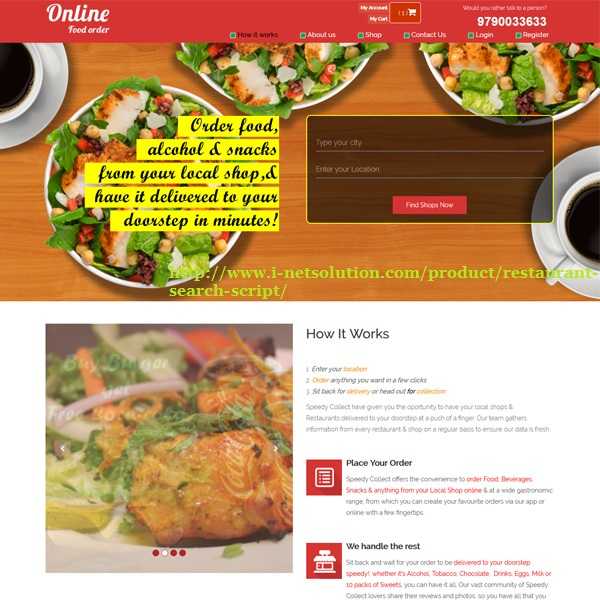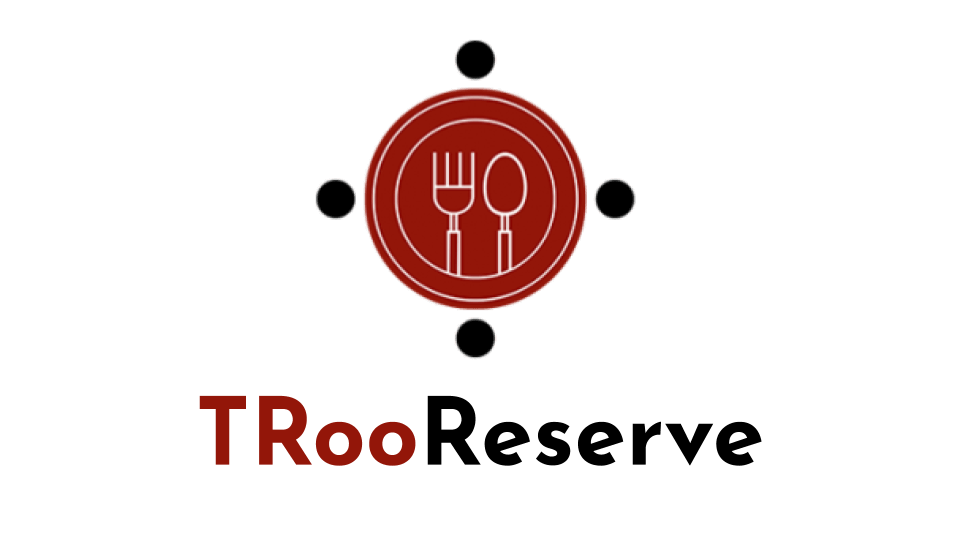Description

Bar Beverage Control

eDelivery
Comprehensive Overview: Bar Beverage Control vs eDelivery
As of my last update, I cannot find specific information on a product called "Bar Beverage Control" or "eDelivery" as standalone entities, as they aren't widely recognized brands or established products in any major industry database. However, I can provide an overview based on general concepts that might fit these descriptions, drawing upon typical functions, potential target markets, and usual differentiators within the beverage and delivery control sectors.
a) Primary Functions and Target Markets
Bar Beverage Control:
Primary Functions:
- Inventory Management: Monitoring and managing the stock levels of various beverages to minimize wastage and avoid stockouts.
- Sales Tracking: Providing insights into what drinks are sold the most and at what times, helping with demand forecasting.
- Portion Control: Ensuring that the correct amount of alcohol is served per drink, which helps reduce costs and manage legal compliance.
- Waste and Loss Prevention: Identifying patterns of wastage or theft and implementing measures to combat these.
Target Markets:
- Bars and Nightclubs: These establishments use beverage control systems to optimize inventory and maximize profit margins.
- Restaurants with Bars: Similar needs exist for restaurants that offer alcoholic beverages as a part of their service.
- Event Venues: Locations that host events and need efficient beverage management.
eDelivery:
Primary Functions:
- Order Management: Handling the process of receiving, fulfilling, and tracking delivery orders.
- Logistics Coordination: Optimizing delivery routes and ensuring timely arrival of goods.
- Customer Communication: Providing order updates and facilitating customer service interactions.
- Analytics and Reporting: Offering insights into delivery times, customer satisfaction, and operational efficiency.
Target Markets:
- Food and Beverage Retailers: Including restaurants, cafes, and bars that need delivery services for takeout and direct-to-customer sales.
- Retail Stores: Especially those looking to expand into e-commerce or improve their delivery efficiency.
- E-commerce Platforms: Online stores that require robust delivery solutions.
b) Market Share and User Base
Since specific products named "Bar Beverage Control" and "eDelivery" might not exist, I will talk in broad terms:
Bar Beverage Control Systems:
- Market Share: The market is fragmented with several specialized players like BevSpot, Partender, and Bevager. These systems cater to small to large-sized establishments and often integrate with broader point-of-sale systems.
- User Base: Predominantly businesses in the hospitality sector, ranging from individual bar owners to chain restaurants.
eDelivery Systems:
- Market Share: This market is competitive with major industry players like Uber Eats, DoorDash, and Postmates. These services tend to dominate in urban areas with high density.
- User Base: While largely focusing on individual consumers, many systems partner with businesses to provide comprehensive last-mile delivery solutions.
c) Key Differentiating Factors
Between Bar Beverage Control Products:
- Integration Capabilities: Some systems offer robust integration with existing POS, accounting, and inventory systems, while others may be standalone solutions.
- Ease of Use: User interface and ease of training staff can vary, impacting how quickly a business can adopt the system.
- Cost Structure: Pricing models may differ based on per transaction, subscription, or feature-based pricing.
- Reporting and Analytics: The depth and usability of analysis tools can be a major differentiator, offering anything from basic reports to deep insights and AI-based recommendations.
Between eDelivery Products:
- Coverage Area: The geographical reach and the number of partner establishments can be a deciding factor for both consumers and businesses.
- Fee Structures: Variability in delivery fees, service charges, and commission structures for restaurants.
- Technology Stack: Advanced algorithms for route optimization, delivery tracking, and predictive ordering are technological differentiators.
- Partnership Opportunities: The ability for businesses to integrate seamlessly for centralized order management and offer exclusive deals.
These systems are reflective of broader industry trends and should be evaluated based on business-specific needs and the operational environment in question.
Contact Info

Year founded :
Not Available
+1 785-820-9926
Not Available
United States
Not Available

Year founded :
2019
Not Available
Not Available
Australia
http://www.linkedin.com/company/e-delivery
Feature Similarity Breakdown: Bar Beverage Control, eDelivery
To provide a feature similarity breakdown for Bar Beverage Control and eDelivery, we'll look into the general characteristics of such platforms, assuming they refer to software solutions for managing bar inventory and beverage delivery, respectively. Without specific product details, I will provide a generic comparison based on standard industry features:
a) Core Features in Common
-
Inventory Management
- Both platforms likely involve inventory management features, though with different focuses. Bar Beverage Control would focus on liquor and beverage stock levels, while eDelivery would manage a broader range of items.
-
Order Management
- Both systems may include modules to handle order processing, tracking, and fulfillment.
-
Reporting and Analytics
- Each platform would typically offer reporting tools to analyze sales data, inventory usage, and operational metrics.
-
User Access Controls
- Both solutions would likely allow administrative users to control access levels for different staff members.
-
Integration Capabilities
- Both might support integration with other systems such as POS for bars or various third-party delivery services in the case of eDelivery.
b) User Interface Comparison
-
Design and Layout
- Bar Beverage Control’s interface might be optimized for quick access to inventory counts, pricing updates, and liquor order submissions, focusing on back-end staff efficiency.
- eDelivery's interface might be more consumer-facing, with a clean, user-friendly design tailored to enhance the end-user experience for placing and tracking deliveries.
-
Usability
- Bar Beverage Control might offer more detailed and complex interfaces tailored for managers or staff managing inventory.
- eDelivery likely emphasizes simplicity and ease of use, focusing on ease of navigation and speed for order placement and tracking.
-
Visualization
- Bar Beverage Control might include more detailed charts and graphs for in-depth analysis of stock levels, usage rates, and waste.
- eDelivery might focus more on mapping and real-time tracking visuals related to delivery logistics.
c) Unique Features
-
Bar Beverage Control Unique Features
- Pour Costing: Advanced analytics on pour costs and waste reduction could be unique to beverage control software.
- Vendor Management: Features to manage relationships and contracts with beverage suppliers.
-
eDelivery Unique Features
- Route Optimization: Algorithms to determine the most efficient delivery routes.
- Real-Time Delivery Tracking: Live tracking for orders providing ETA and status updates.
Understandably, the specifics can vary based on the actual products and companies offering these solutions. If these products are actual proprietary software, particular features and designs may differ significantly from this general overview.
Features

Not Available

Not Available
Best Fit Use Cases: Bar Beverage Control, eDelivery
Bar Beverage Control and eDelivery are two distinct solutions that serve specific needs in the hospitality and delivery sectors. Here's a breakdown of their optimal use cases and target industries or company sizes:
a) Best Fit Use Cases for Bar Beverage Control
Types of Businesses or Projects:
-
Bars and Nightclubs: These establishments benefit significantly from Bar Beverage Control systems to monitor and manage inventory, prevent theft, and ensure consistent quality in drink preparation.
-
Restaurants with a Large Bar Section: Restaurants that feature extensive drink menus can use these systems to streamline drink service and efficiently manage stock levels.
-
Casinos and Hotels: Venues with multiple bars or large-scale operations require robust monitoring to maintain inventory control across several locations.
-
Event Venues: Spaces that host large events or conferences can use beverage control systems to handle the high volume of drink orders and ensure accountability.
-
Franchise Chains: Franchises can maintain uniformity across multiple locations by using a standardized beverage control system for inventory and recipe management.
b) Best Fit Use Cases for eDelivery
Scenarios for Preferred Use:
-
E-commerce Retailers: Online businesses that need efficient logistics solutions for the delivery of goods to their customers.
-
Food and Beverage Delivery Services: Restaurants, cafes, and food delivery platforms that wish to streamline the process of getting orders to customers quickly and efficiently.
-
Grocery Delivery Services: Supermarkets and specialty food stores that offer delivery services require robust eDelivery solutions to handle logistics, scheduling, and routing.
-
Pharmaceutical and Medical Supplies: Companies that need to deliver sensitive or time-critical shipments can benefit from the tracking and management features of eDelivery solutions.
-
B2B Distributors: Businesses providing delivery services to other businesses, ensuring timely and accurate shipments to their clients.
d) Catering to Different Industry Verticals or Company Sizes
Bar Beverage Control:
-
Industry Verticals: Primarily targets the hospitality, food service, and entertainment industries, where beverage sales are a significant revenue source.
-
Company Sizes: Scalable solutions cater to small independent bars to large chain franchises, providing features suitable for businesses of all sizes.
eDelivery:
-
Industry Verticals: Caters to retail, logistics, hospitality, healthcare, and food service industries. The focus is on sectors where timely delivery is crucial.
-
Company Sizes: Offers flexible solutions that can adapt to the needs of small startups, mid-sized companies, and large enterprises. Scalable features ensure that as a company grows, the eDelivery solution can expand alongside.
Overall, Bar Beverage Control and eDelivery are designed to optimize and enhance operations within their respective domains, ensuring efficiency, accountability, and customer satisfaction for businesses of varying sizes and industry focuses.
Pricing

Pricing Not Available

Pricing Not Available
Metrics History
Metrics History
Comparing undefined across companies
Conclusion & Final Verdict: Bar Beverage Control vs eDelivery
To provide a comprehensive conclusion and final verdict on Bar Beverage Control and eDelivery, let's evaluate each aspect you've requested.
a) Best Overall Value
Considering all factors, which product offers the best overall value?
When determining the best overall value, it's essential to consider the functionality, cost-efficiency, user-friendliness, integration capabilities, and customer support of each product.
-
Bar Beverage Control: This product is often geared towards helping bar owners efficiently manage their inventory, track sales, and reduce waste. It excels in environments where precise tracking of liquor and beverage inventories is crucial, providing long-term cost savings through reduced inventory losses.
-
eDelivery: Primarily focused on streamlining the ordering and delivery process, eDelivery provides solutions for managing online orders, optimizing delivery routes, and enhancing customer communication. It offers excellent value for establishments that rely heavily on delivery services.
Verdict: If the primary need is inventory management and cost reduction related to beverages, Bar Beverage Control may offer the best overall value. However, for businesses prioritizing delivery services and order management, eDelivery could provide superior value.
b) Pros and Cons
What are the pros and cons of choosing each of these products?
-
Bar Beverage Control:
- Pros:
- Specialized in beverage inventory management.
- Helps reduce waste and increase profit margins.
- In-depth analytics and reporting for sales and usage trends.
- Cons:
- May require significant setup and employee training.
- Potentially significant upfront and ongoing costs.
- May not address non-inventory related operational needs.
- Pros:
-
eDelivery:
- Pros:
- Streamlines and optimizes the order and delivery process.
- Enhances customer satisfaction with efficient communication.
- Integration with multiple platforms to increase reach.
- Cons:
- Not focused on inventory control beyond order management.
- May include fees or commissions on transactions.
- Dependence on internet connectivity and digital infrastructure.
- Pros:
c) Specific Recommendations
Are there any specific recommendations for users trying to decide between Bar Beverage Control vs eDelivery?
-
Assess Your Primary Needs: If your main concern is managing high volumes of beverage inventory with precision, Bar Beverage Control is likely the better choice. For those focusing on enhancing their delivery service and managing online orders, eDelivery should be considered.
-
Evaluate Integration and Compatibility: Determine if either product integrates seamlessly with your existing systems (e.g., POS systems, accounting software) and consider the technical requirements for implementation.
-
Consider Business Size and Scale: Smaller establishments with a simple setup might benefit more from eDelivery’s straightforward approach, whereas larger bars with extensive inventory may prefer the focused capabilities of Bar Beverage Control.
-
Customer Support and Training: Evaluate the quality of customer support and training offered by each vendor. Some businesses might prefer a company that provides comprehensive onboarding and ongoing support.
-
Budget Constraints: Reflect on your financial limits, as the costs associated with implementation and maintenance can be significant.
In conclusion, the decision between Bar Beverage Control and eDelivery should be guided by the specific operational priorities and business model of your establishment. Each offers unique advantages, so careful consideration of your primary business needs, budget, and integration capabilities will guide you to the best choice for your business.
Add to compare
Add similar companies




